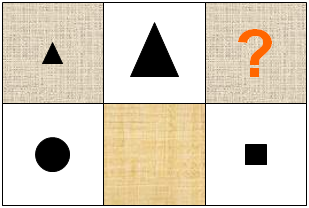UKCAT Abstract Reasoning Practice Guide
Abstract reasoning tests are often given to candidates as a part of job selection process to measure how well they can solve a problem or underlying logic of a question or argument. Usually, questions in this sort of assessments are in the form of abstract patterns where you will have to identify different symbols and figure out what they have in common. Below, we present you with the most important topics you should make yourself familiar with in order to succeed in these assessments.
 |
Learn basic facts about abstract reasoning tests and see what to expect in such assessments. Find out:
- What it is?
- What is the format?
- What are the main challenges?
Frequent UKCAT abstract test patterns
These tests are constructed from wide range of shapes and symbols arranged in variety of different ways. Generally speaking, abstract patterns can be classified into five major categories i.e. classic, multiple, complex, unusual and conditional.
- Classic patterns usually consist of single rule
- Questions involving multiple patterns consist of two or more rules
- More advanced complex patterns will often present tricks involving range of twists and turning of symbols
- The fourth category unusual patterns, as the word suggests, involve unusual looking shapes and symbols i.e. squiggles, wavy lines
- The fifth and perhaps the most advanced group called conditionals assume rules where one characteristic of an item may dictate characteristic of another item
This section will provide you with in-depth tutorial on each pattern type and will attempt to deepen your understanding on how to go about answering the types of questions found in abstract reasoning assessments. Click on the link above to find out more about each of these categories
Free UKCAT abstract reasoning test
After you reviewed the above topics try to find a quiet place to work and take this practice test. Your goals for this test are:
- Complete UKCAT practice test under real examination test conditions
- Get complete report on your test performance
- Check your test answers and read explanation for every question
- Use your results to assess your strength and weaknesses
After taking the UKCAT reasoning practice tests you can review quick tips on how to improve upon your test taking strategies. It will present you with few hints on what to do to keep steady pace with your preparation.
- Find out techniques that can improve your performance and raise your score
- Learn how to take strategic approach when taking the assessment
- Find out what you need to know in order to succeed
Mistakes to avoid in UKCAT abstract test
Widen your understanding further and learn what the most common mistakes at UKCAT reasoning tests are and learn how to avoid them. This section will briefly summarise few things you need to be aware of.
- Don’t fall into the common traps of abstract test questions
- Learn from mistakes of others and get yourself leading edge
- Develop successful test taking strategy

